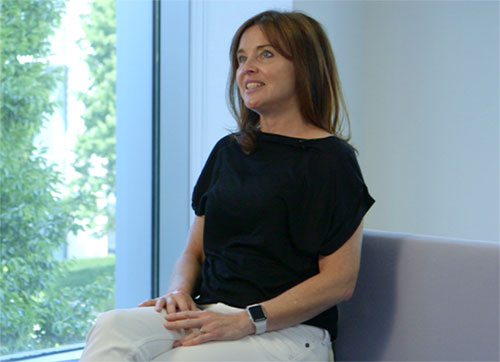A Cartwright-advised scheme has allocated 3% of its assets to Bitcoin… Sam Roberts explains why this move makes sense
In this article, Sam Roberts, the director of investment consulting at the scheme's adviser, Cartwright, explains why he believes Bitcoin has now evolved from a niche digital asset into a mainstream investment opportunity...
Last month, an unnamed scheme caused a furore when it became the first in the UK to complete a 3% allocation to the controversial cryptocurrency Bitcoin. See: https://www.professionalpensions.com/news/4376142/unnamed-scheme-uk-allocate-bitcoin
Remember what they said about the following …
- Facebook...? It will never take off... a passing trend… no long-term growth. The reality was it became one of the largest social media platforms worldwide, a multibillion-dollar company, and paved the way for social media as we know it.
- Online banking. It will never work… you can't trust it… lack of face-to-face. The reality was that online banking became the norm and millions around the work now use it daily, and instinctively.
- E-commerce. (Amazon, Ebay etc) Security concerns… shipping concerns… inability to physically inspect the items. The reality was that online shopping soon became the preferred method of buying globally.
- Cloud computing. it's not safe,.. It's not reliable. The reality was that cloud computing became the backbone of modern IT infrastructure.
- Streaming? People won't consume their media this way – they're used to DVDS, CDs etc. The reality was that streaming became the dominant way for people access their media.
But what's this got to do with pensions?
UK occupational pension trusts are currently in very different situations. Maybe 50% of defined benefit (DB) trusts are targeting buyout and wind up over the next few years – this is great news for both those members and sponsors.
Others are five or more years away from buyout and/or wish to run-on the trust. These schemes need assets that can grow in value and they need to be willing to take some investment risk/volatility to achieve that growth.
Defined contribution (DC) trusts are generally trying to tackle the problem of low member contributions leading, inevitably to poor member outcomes. Part of the solution could be to target higher investment returns, and/or invest in growth for longer. Helpfully, with fewer annuities being bought, many members' time horizons extend past retirement.
So, what if there were an asset that offered long-term asymmetric growth potential, inflation resistance, good diversification against other investments, and near-zero counterparty risk if held properly? An asset that was also entirely consistent with existing regulations/law and The Pensions Regulator's (TPR's) guidance. In addition, an asset that just so happens to be the most ESG-friendly asset available? What then? The only thing that is really required is a willingness to try and understand the new asset class, and some time to do so.
One pension trust has already paved the way. That asset? Bitcoin.
Let's look at why it makes sense…
1. Long-term asymmetric growth potential
The two key purposes of money are to move value over time (store of value) and move value over space (medium of exchange). Government currencies are good at being moved quickly around the world but lose significant value over time. Gold is good at maintaining its value over time, but difficult and costly to move over long distances. Bitcoin scores better on both factors due to its fixed supply of 21 million bitcoins and its purely digital nature allowing it to achieve final settlement globally within seconds.
The corollary is that the best money will ultimately be used by everyone globally, but it takes time for the benefits to become well known. Bitcoin therefore has the potential to become a global money whilst also absorbing some value from other assets that are currently used as inefficient stores of value (e.g. real estate, bonds and equities). Bitcoin's potential market cap could therefore exceed $200trn (£158trn) compared to the current bitcoin market cap of $2trn. This suggests significant upside potential for the bitcoin price.
Becoming widely accepted is an unpredictable process for any new technology. Human emotions mean that the journey has frequent periods of hype and despair. For bitcoin, this hype and despair shows as dramatic price volatility. What should matter for investors is the health of the underlying bitcoin network which continues to reliably confirm transactions roughly every 10 minutes.
Having a small allocation (2% to 4%) to this potential upside provides the long-term asymmetric opportunity.
2. Inflation resistance
60+ years ago, inflation meant growth in the supply of whatever money (£/$/gold) was being referred to. Since the 1970s, price inflation has instead increasingly referred to price rises, which confuses cause and effect.
The only way to hedge money supply inflation is to buy useful assets which are hard to produce more of. Gold is a good historical example but still suffers from some supply inflation due to new gold mined each year. Real estate has performed well but is propped up by lots of debt. Bitcoin offers a unique solution as the ultimate hard asset due to its fixed ultimate supply of 21 million bitcoins.
3. Diversification
Diversification has long been used to spread risk across uncorrelated assets to stabilise overall portfolio performance. Bitcoin's price movements have historically shown low correlation with traditional asset classes, such as equities, real estate and bonds, making it an effective diversifier. Fragile economies with huge debt loads have significant counterparty risk which flows through to the quality of the equity, real estate and bond markets. So, being able to hold bitcoin with near-zero counterparty risk is attractive from a diversification and risk management perspective.
In fact, a bitcoin allocation is a hedge against bitcoin being successful.
4. Near-zero counterparty risk
In some ways, bitcoin investment is straightforward. Trustees buy it and hold it, trimming the allocation when it gets too large. The only risk that should be taken is price volatility, which means that the custody arrangements should have near-zero counterparty risk and remove any single points of failure. This was a key barrier to bitcoin maturing into an institutional asset class until this issue was solved during 2024.
5. The law and TPR
Bitcoin, implemented securely and within a well-diversified portfolio, is entirely consistent with the law and TPR's guidance, including the importance of diversification, prudence and appropriate governance.
Bitcoin is one of many asset classes that should be considered by trustees, and it's not right for everyone. However, a non-zero allocation should now be considered for any trust/member with a long enough time horizon (five-plus years).
Environmental and social impacts are important for many trustees, sponsors and members. What's not yet well-known is that bitcoin is more supportive of these aims than any other asset available and achieves this in sometimes surprising ways.
6. Extra thoughts on DC
A DC trust can become more appealing to younger members who tend to view bitcoin as a legitimate investment option. Younger members also have longer time horizons, and financially engaged members are probably already wondering why bitcoin is not available to them. What we find is that when people learn about bitcoin they learn about money, and this leads to higher saving rates and greater financial wellbeing – a currently elusive goal for many human resource professionals.
Conclusion
It's clear that Bitcoin has become a controversial topic with a lot of negative backlash, not dissimilar to the examples given at the beginning of this piece. Conversation is good – it's an opportunity to educate and debate. However, what is less helpful is uneducated discourse based on, well, not much at all. Bizarrely, if it wasn't for so many misconceptions about bitcoin, we would already be well on the way to mass adoption given its highly attractive investment attributes.
Bitcoin has evolved from a niche digital asset into a mainstream investment opportunity, and dismissing it could prove costly. For pension funds, it offers a valuable chance to diversify portfolios and potentially achieve higher returns.
Sam Roberts is Director of Investment Consulting at Cartwright Pension Trusts
If you would like to discuss this matter further, please get in touch using the contact form below.
Visit professionalpensions.com













